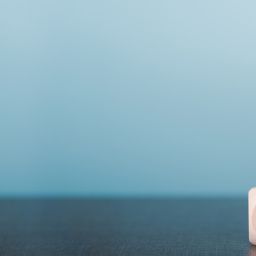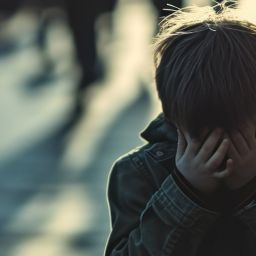In today’s digital world, social media has become a massive part of our daily lives. From connecting with loved ones to staying informed about current events, these platforms have transformed the way we interact and communicate. However, with great power comes great responsibility, and the impacts of social media on mental health is a topic worth exploring. In this article, we will throw some light on the most considerable factors contributing to the Mental Health Effects of Social Media, including Social Media and Anxiety, Social Media and Depression, and the overall Negative Impact of Social Media. Let’s dive into how scrolling, liking, and sharing affect your mental well-being.
Relationship Between Mental Health and Social Media?
Mental health is about our overall emotional, psychological, and social well-being. It affects how we think, feel, and interact with others. When we talk about mental health, we’re referring to your ability to handle stress, maintain relationships, and make decisions. It’s as vital as your physical health, yet often overlooked. In recent years, the impacts of social media on mental health have become a growing concern. Studies have shown a correlation between excessive social media use and increased rates of anxiety and depression, particularly among young people. The constant exposure to curated images and idealized lifestyles can lead to feelings of inadequacy and social comparison, negatively impacting self-esteem and overall well-being.
The Role of Behavioral Health in Social Media Usage
Behavioral health focuses on how habits and actions affect your overall well-being. Social media, being a daily habit for many, plays a significant role here. Are you doomscrolling late at night or constantly checking your likes? These behaviors can have a profound effect on your mental health over time. The impacts of social media on mental health, particularly the links between social media and anxiety or depression, have become a growing concern. Understanding these negative impacts is crucial for individuals to take steps to protect their mental well-being.
Social Media Effects on Mental Well-Being
While social media isn’t inherently bad, its effects on mental well-being can be both positive and negative. For example, it can foster social connections and provide access to information and support networks, but it can also contribute to feelings of isolation, anxiety, and depression. Let’s break it down:
- Positive Impacts: Staying connected with friends and family, finding supportive communities, and accessing educational resources.
- Negative Impacts: Increased feelings of loneliness, anxiety, and depression from constant comparison or cyberbullying.
The Impacts of Social Media on Mental and Behavioral Health
The Science Behind the Screen
Studies show that prolonged social media use can activate the brain’s reward system, releasing dopamine—the “feel-good” hormone. While this might sound like a good thing, it’s a double-edged sword. Over time, you can develop an unhealthy dependency on these platforms for validation. This can lead to feelings of inadequacy and low self-esteem when you don’t receive the desired level of engagement or approval.
Social Media Effects on Sleep
While social media platforms aren’t inherently harmful, their impact on mental well-being can be multifaceted. On the one hand, they can foster social connections and provide access to valuable information and support networks. However, excessive use can lead to feelings of isolation, anxiety, and depression.
Research suggests that prolonged engagement with social media can trigger the brain’s reward system, releasing dopamine. Although this may appear beneficial, it can foster an unhealthy reliance on these platforms for approval and self-worth. This dependence can contribute to feelings of inadequacy and low self-esteem when users don’t receive the desired level of engagement or approval.
Many people find themselves spending excessive time scrolling through social media feeds, often sacrificing sleep. This disruption of sleep patterns can have significant negative consequences for mental health. Poor sleep quality can lead to irritability, decreased focus, and even contribute to the development of chronic mental health conditions such as anxiety and depression. Additionally, the blue light emitted by screens can interfere with the body’s production of melatonin, a hormone crucial for regulating sleep-wake cycles.
Comparing Your Life to Highlight Reels
Social media platforms frequently highlight the best moments of people’s lives. When we compare ourselves to these carefully curated online personas, it’s easy to feel inadequate and dissatisfied with our own lives. This phenomenon, known as social comparison, can negatively impact our mental well-being. It’s important to remember that these platforms often present a distorted and unrealistic view of reality, and that everyone experiences ups and downs.
Understanding Behavioral Health and Social Media
The Feedback Loop of Likes and Shares
The addictive nature of social media stems from its carefully designed features. Every like, comment, or share triggers a reward system within the brain, reinforcing the behavior and encouraging users to return for more. This pattern can lead to compulsive use, negatively impacting mental health and overall well-being.
Behavioral Changes in Teens
Teenagers, in particular, are susceptible to the negative impacts of social media. During adolescence, individuals often seek validation and acceptance from their peers, a need that social media platforms can both fulfill and exacerbate. Cyberbullying, sexting, and exposure to harmful content further complicate the challenges faced by teenagers in the digital age.
Mental Health Awareness in the Digital Age
Breaking the Stigma
It’s more important than ever to openly discuss mental health. Social media, ironically, plays a crucial role in raising mental health awareness. Campaigns, hashtags, and influential figures have made it easier to discuss issues like anxiety and depression openly, reducing stigma and encouraging people to seek help. However, it’s important to remember that social media should be used as a tool, not a replacement for professional help.
Using Social Media for Good
While social media can have negative impacts, it also offers numerous benefits. Platforms like Instagram, Twitter, and TikTok can be powerful tools for spreading positivity, sharing mental health tips, and connecting with therapists or support groups. These platforms can provide a sense of community, reduce feelings of isolation, and offer valuable resources for individuals struggling with mental health issues.
How Social Media Shapes Mental Well-Being
The Pressure to Be Perfect
Filters, editing apps, and the relentless pursuit of likes create an unrealistic standard of beauty and success. This pressure to present a perfect image can lead to low self-esteem, body image issues, and anxiety. It’s crucial to remember that social media often portrays a skewed and overly positive version of reality, and that everyone has imperfections and insecurities.
Digital Detox: A Step Towards Mental Well-Being
Taking a break from social media can significantly improve your mental well-being. A digital detox allows you to reconnect with yourself, improve your sleep, and reduce stress levels. Disconnecting from constant notifications and the pressure to be constantly connected can lead to increased productivity, creativity, and overall well-being.
The Impact of Social Media on Relationships
Strengthening Connections
On the positive side, social media helps you stay connected with friends and family, especially those living far away. Sharing updates, photos, and messages can strengthen these bonds and provide a sense of community. Additionally, social media can be a valuable tool for learning, staying informed about current events, and discovering new interests.
The Downside: Superficial Interactions
However, if you completely rely on social media for communication, this can lead to shallow relationships. While online interactions can maintain connections, they cannot fully replace the depth and richness of face-to-face interactions. Building meaningful relationships requires genuine connection, empathy, and shared experiences, which are often best fostered through in-person interactions.
Strategies to Protect Your Mental Health
Setting Boundaries
- Limit your screen time by using apps that track and manage usage.
- It’s a good idea to avoid using social media during meals or before bed.
Curating Your Feed
- Consider unfollowing any accounts that make you feel bad about yourself.
- Follow profiles that inspire and uplift you.
Practicing Mindfulness
- Keeping yourself busy in activities like meditation or yoga can help you to calm your mind and body.
Be present in the moment rather than getting lost in the digital world.
Seeking Professional Help?
If you notice that social media is negatively impacting your mental health, don’t hesitate to consult a mental health professional. A therapist can provide guidance and support to help you develop healthy coping mechanisms and manage your social media use. Remember, you’re not alone in this, and seeking help is a sign of strength. If you need assistance finding a mental health professional, please don’t hesitate to contact us.
Mental Health Awareness: A Shared Responsibility
Educating the Youth
Schools and parents play a vital role in teaching children about the responsible use of social media. Encouraging open conversations can help them navigate the digital world safely. By educating children about digital literacy, online safety, and the potential consequences of their actions, we can empower them to use social media responsibly and protect their mental well-being.
Corporate Responsibility
Tech companies also have a part to play in mitigating the negative effects of social media on users’ mental health. Implementing features like time limits, content moderation, and increased transparency can help reduce harmful content and promote healthier online experiences. By prioritizing user well-being, tech companies can create a safer and more positive digital environment for all.
FAQs About Social Media and Mental Health
How Does Social Media Affect Mental Health?
It impacts mental health by influencing self-esteem, sleep patterns, and social interactions. Both positive and negative effects depend on how you use it.
Can Social Media Cause Depression?
While social media doesn’t directly cause depression, excessive use can contribute to feelings of loneliness, anxiety, and low self-worth.
How Can I Use Social Media Positively?
Follow uplifting content, limit screen time, and use platforms to raise awareness about important issues.
Conclusion
Social media is neither good nor bad; it’s a tool that can be used for both positive and negative purposes. How you use it determines its impact on your mental health. By being mindful of your habits, setting boundaries, and fostering real-world connections, you can enjoy the benefits of social media without compromising your mental well-being. Remember, your mental health is your wealth, so take care of it—both online and offline. Prioritize self-care, seek support when needed, and strive for a balanced digital lifestyle.
















